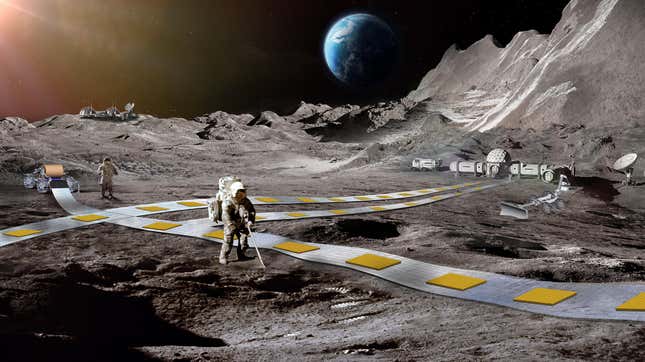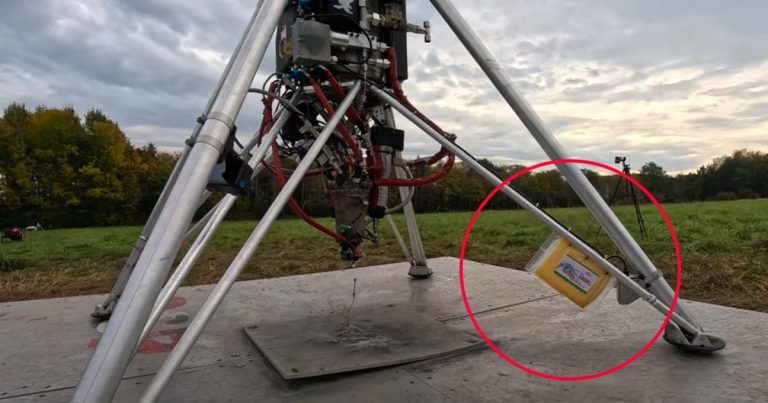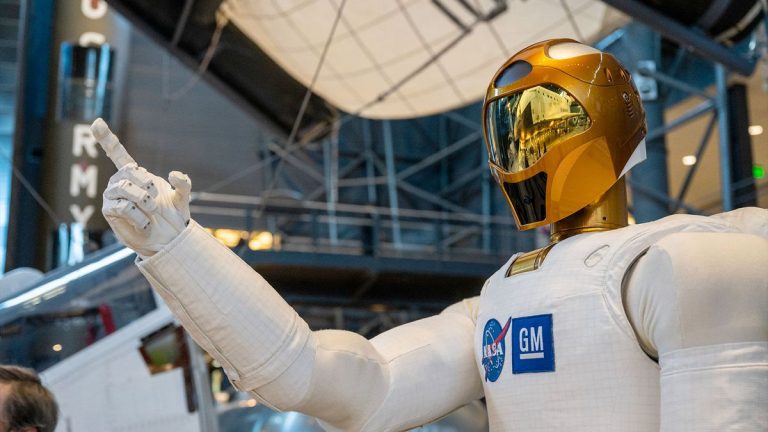
NASA’s Bold Plan to Build the First Railway on the Moon (Image Credit: Gizmodo-com)

NASA aims to set up a long-term human presence on the Moon, but maintaining a habitat on the surface will require some innovative infrastructure. To one day transport cargo across the dusty, cratered landscape, NASA is considering a magnetic levitation railway system.
NASA’s Innovative Advanced Concepts (NIAC) program recently announced six projects selected for the second stage of development, meaning they will receive additional funding and support from the space agency. Among the futuristic concepts is a robotic transport system called FLOAT, or Flexible Levitation on a Track. Here’s how the team describes their idea:
The FLOAT system employs unpowered magnetic robots that levitate over a 3-layer flexible film track: a graphite layer enables robots to passively float over tracks using diamagnetic levitation, a flex-circuit layer generates electromagnetic thrust to controllably propel robots along tracks, and an optional thin-film solar panel layer generates power for the base when in sunlight. FLOAT robots have no moving parts and levitate over the track to minimize lunar dust abrasion / wear, unlike lunar robots with wheels, legs, or tracks.
The robots, outfitted with carts, would be able to carry payloads of various shapes weighing up to 72 pounds (33 kilograms) at a speed of 0.5 meters per second. The system won’t carry humans, though. FLOAT is mainly designed to deliver loads of lunar soil, building material, and equipment to astronauts working on the lunar base.
FLOAT is meant to be super easy to deploy. The railway system would operate autonomously; the tracks could unroll directly onto the surface without the need for major on-site construction.
The design for FLOAT is new, but the idea of a lunar railroad has been around for a long time. Northrop Grumman is working on its own concept for a Moon-based railroad that would be able to carry both cargo and humans.
For the second phase of NIAC, the researchers behind FLOAT will focus on designing and testing a series of sub-scale robot/track prototypes, looking into the potential environmental impacts, and refining the simulations of the railway system.
Future human settlements on the Moon and Mars will require some out-there engineering ideas to become reality. Another concept currently in the works as part of NIAC is a potentially groundbreaking propulsion system that would use nuclear fission to generate thrust in the form of controlled packets of plasma. The proposed plasma rocket could transport astronauts to Mars in as little as two months.
For more spaceflight in your life, follow us on X and bookmark Gizmodo’s dedicated Spaceflight page.








